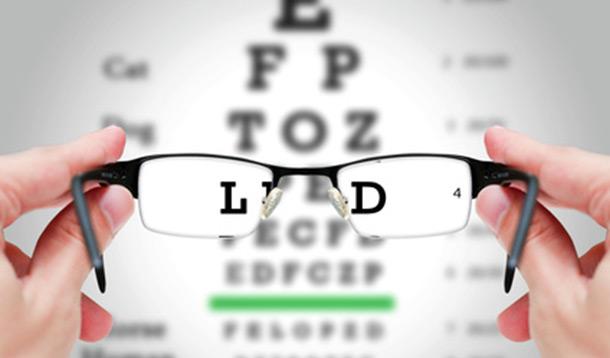
Staying healthy throughout your life is not a simple matter. We all know the laundry list of things we must do: stay active, eat well, floss, get enough sleep, take your vitamins, see your doctor for regular checkups...the list can go on.
Let’s face it...it’s easy to get overwhelmed by it all.
To make it all more manageable, try to stay on track with a "team approach" in mind. If you leverage the power of teamwork, staying healthy becomes a much more do-able endeavour. Pull together a team of professionals, each with a different role to play, and think of them as your healthcare pit crew.
A solid healthcare team should include a family doctor, a dentist, a dietitian, a pharmacist, maybe a counsellor and a physiotherapist…and there’s one you may not have considered: a doctor of optometry.
Don’t wear glasses, you say? Well, even if that’s the case, here are some reasons why it’s always a good idea to include an optometrist on your team:
A number of serious health conditions can be detected by a comprehensive eye exam. You may think you’re only there to have your vision checked, but an optometrist can also detect signs of high blood pressure, diabetes, liver disease, neurologic conditions, thyroid disease, and many other health issues.
The information gleaned from a thorough exam can also help other practitioners on your team to better manage any known conditions you may already have, such as diabetes. If diabetes isn’t managed well, an eye exam may reveal signs of that, signaling a need to modify your medication or work on making diet and lifestyle changes.
A visit with a doctor of optometry involves more than a quick screen of your vision. A comprehensive eye exam will assess your entire visual system through a series of tests and procedures—it’s like a physical for your eyes. All eye tests are not created equally, and the fact is, this sort of comprehensive checkup is much more than your family doctor can typically do.
As a family doctor, I often see people in my clinic with eye complaints and I frequently refer them to an optometrist for a more detailed examination. A doctor of optometry has the equipment and expertise to do a truly thorough assessment.
Optometrists play a key role on your healthcare team and they communicate closely with your family physician and other health professionals. In my family physician role, I value the reports sent to me by doctors of optometry. Together, we work to improve patient care and quality of life.
Regular eye exams are important for your whole family. Adults should have an eye exam every two years until age 65, and every year after that. Children need at least one eye exam between the ages of two and five, and yearly once they start school. Infants should have their first eye exam between six and nine months of age.
Just like you, I’m busy juggling all the tasks of work, family, and personal life. But just as I take my kids to the dentist for regular checkups, I also make it a priority to go in as a family for regular eye exams. I recommend the same approach for my patients. When I see people for their annual physicals, I ask them a lot of screening questions: if they smoke, how much they drink…and, yes, when they last had an eye exam.
You can’t do it all alone—and there’s no need to try. Not when you have a team of professionals ready to help you live your healthiest, best life!

This post is brought to you by Doctors of Optometry Canada.
www.doctorsofoptometry.ca
Connect with the Doctors of Optometry Canada on Facebook: https://www.facebook.com/AskaDoctorofOptometry